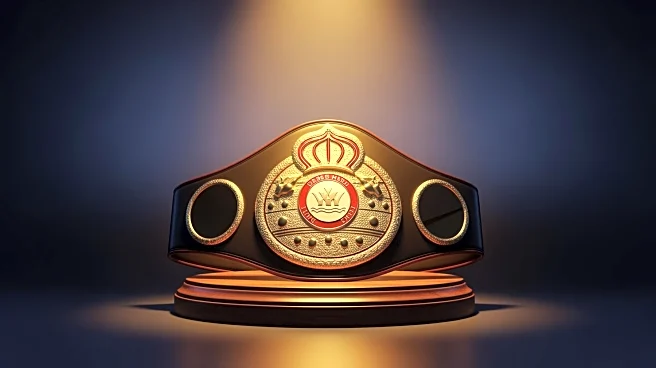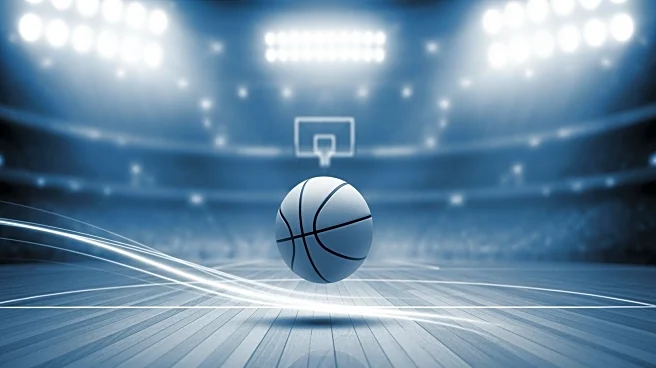What's Happening?
Former boxing world champion Gennady Golovkin has been elected as the president of World Boxing, a newly formed governing body for the sport. Golovkin, who hails from Kazakhstan, stood unopposed for the position during World Boxing's annual congress held in Rome. He succeeds Dutchman Boris van der Vorst. Golovkin, known for his fierce competitiveness in the ring, has not officially retired but has not fought since his loss to Saul 'Canelo' Alvarez in September 2022. His election comes at a crucial time as boxing's place at the 2028 Olympics was uncertain before World Boxing received provisional recognition from the International Olympic Committee (IOC) in February. Golovkin has pledged to restore boxing's long-term presence at future Olympic Games,
emphasizing the importance of securing full IOC recognition.
Why It's Important?
Golovkin's election as president of World Boxing is significant for the sport's future, particularly its inclusion in the Olympic Games. The IOC had previously taken over the boxing competition at the 2020 and 2024 Olympics due to issues with the former governing body, the International Boxing Association (IBA). Golovkin's leadership could stabilize the sport's governance and ensure its continued presence in the Olympics, which is crucial for its global visibility and development. His commitment to restoring trust in World Boxing and achieving full IOC recognition could lead to increased investment and interest in boxing, benefiting athletes and stakeholders worldwide.
What's Next?
Under Golovkin's leadership, World Boxing will focus on securing full recognition from the IOC, which is essential for the sport's inclusion in future Olympic Games. This involves meeting the IOC's standards for governance and transparency. Golovkin's efforts to restore trust in the sport may also involve reforms in how boxing is managed and promoted globally. Stakeholders, including athletes, sponsors, and national boxing federations, will be closely watching how Golovkin navigates these challenges and opportunities.
Beyond the Headlines
Golovkin's presidency could have broader implications for the sport's integrity and reputation. His focus on restoring trust may lead to initiatives aimed at improving transparency and fairness in boxing, addressing issues such as judging controversies and doping. These efforts could enhance the sport's credibility and attract new fans and participants. Additionally, Golovkin's leadership might inspire other former athletes to take on governance roles, potentially leading to a shift in how sports organizations are managed.















